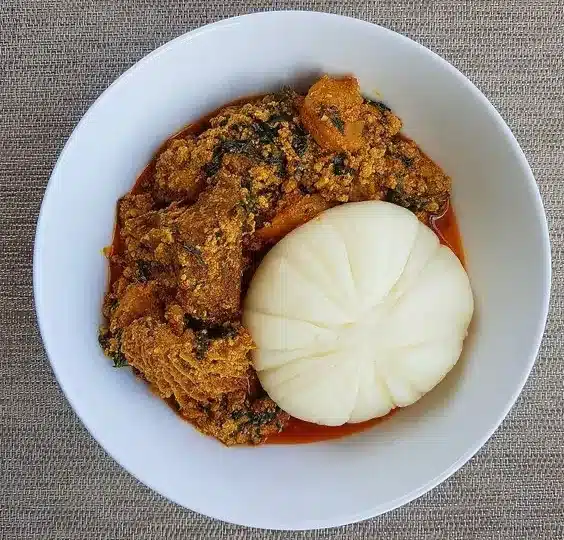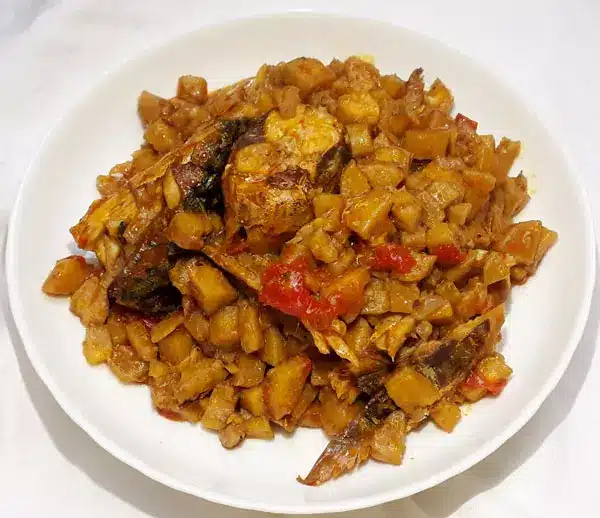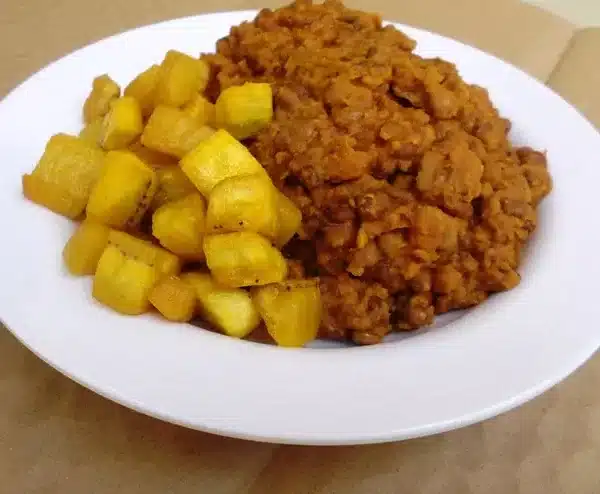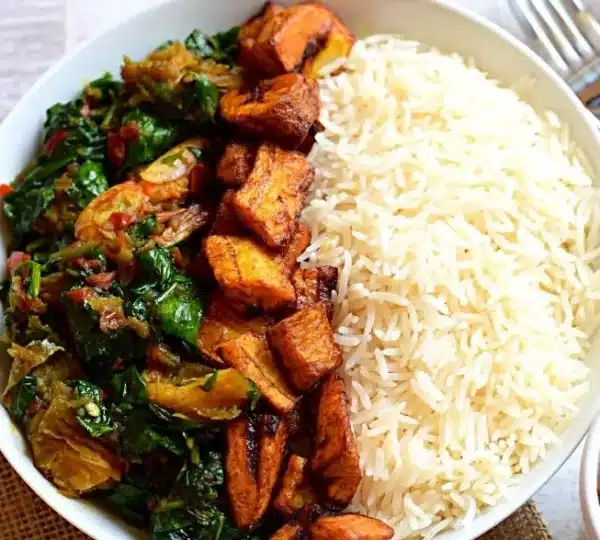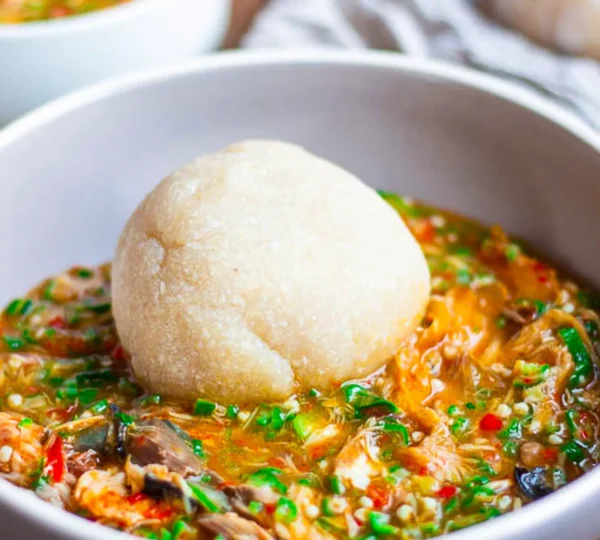Nigerians are known for their love of bold flavours, generous portions, and food that comforts the soul. But staying healthy doesn’t mean giving up the taste of home. With a few smart choices, healthy Nigerian food can be every bit as satisfying as the rich, oily stews or deep-fried snacks we grew up with. In this post, we explore how to eat clean, stay fit, and still enjoy Naija flavour every day.
The Truth About “Healthy” Eating in Nigeria
The phrase healthy eating often brings to mind bland foreign diets, but that’s far from reality in Nigeria. Our local ingredients—yam, plantain, beans, vegetables, grains, and spices—are naturally nutrient-dense. The real issue lies in how we prepare them.
Too much oil, excessive frying, or heavy seasoning cubes can quickly turn a wholesome meal into a calorie bomb. But swap a few habits, and you’ll discover that Nigerian meals can be both delicious and balanced.
Building a Healthy Nigerian Plate
A truly healthy plate balances three elements:
-
Energy foods (carbs) — yam, sweet potatoes, brown rice, ofada rice, millet, or whole-grain swallow.
-
Body-building foods (protein) — fish, beans, eggs, lean beef, or tofu.
-
Protective foods (vegetables and fruits) — ugu, spinach, okra, carrots, pawpaw, and oranges.
Portion Control
Nigerian meals often fill the plate, but moderation matters. A thumb rule:
-
Half your plate = vegetables
-
One-quarter = protein
-
One-quarter = carbs
That way, you still enjoy your pounded yam—just without the guilt.
Smart Ingredient Swaps for Everyday Meals
Healthy eating isn’t about restriction; it’s about replacement. Here are simple swaps that transform regular meals into healthy Nigerian food options.
Swap 1: Frying → Grilling or Steaming
Instead of deep-frying plantains, grill or air-fry them. You’ll still get that sweet caramelised taste with 70 % less oil.
Swap 2: Palm Oil → Moderation or Alternative Oils
Palm oil is rich in antioxidants but also high in saturated fat. Use less, or combine it with olive or groundnut oil. A teaspoon can still bring that signature red colour.
Swap 3: Seasoning Cubes → Herbs & Spices
Reduce sodium by seasoning with fresh ingredients like scent leaf, uziza, thyme, garlic, and ginger. You’ll be amazed at how much richer your meals taste.
Swap 4: Refined Carbs → Whole Grains
Replace white rice with ofada, millet, or fonio. They have more fibre and keep you full longer—great for anyone watching weight.
Healthy Nigerian Dishes You’ll Actually Love
Let’s get practical! These meals prove that clean eating doesn’t have to be boring.
1. Unripe Plantain Porridge
Rich in iron and low in sugar, unripe plantain porridge cooked with spinach, crayfish, and a hint of palm oil makes an excellent post-workout meal.
2. Efo Riro with Grilled Fish
Cooked with minimal oil, Efo Riro retains its flavour while offering loads of vitamins A and C. Pair with a small serving of brown rice or amala.
3. Beans and Sweet Potato Pottage
A powerhouse of protein and fibre. Skip the frying; simply boil and mash with a drizzle of oil.
4. Ofada Rice and Vegetable Sauce
Use lean beef and less palm oil in your sauce. The distinct aroma of ofada rice alone will make the meal feel indulgent.
5. Oats Swallow with Okra Soup
Blend rolled oats, steam lightly, and use it as swallow with okra or ogbono soup. It’s light, filling, and diabetic-friendly.
Lifestyle Habits That Support Healthy Eating
1. Stay Active Daily
You don’t need a gym membership—dance while cooking, walk more, or do short home workouts. Movement boosts metabolism and mood.
2. Hydrate with Water and Local Drinks
Avoid sugary sodas; instead, try zobo sweetened lightly with honey, or infused water with pineapple and cucumber.
3. Practice Mindful Eating
Eat slowly, enjoy each bite, and listen to your body’s signals. Nigerian culture often celebrates abundance, but satisfaction doesn’t require overeating.
Why Healthy Nigerian Food Deserves Global Attention
The world is catching on to Nigerian flavours—from jollof to suya—but there’s so much more to offer. Our indigenous ingredients like moringa, tiger nuts, and locust beans have powerful health benefits that rival “superfoods” abroad. Promoting healthy Nigerian food isn’t just a wellness trend; it’s a celebration of our culinary identity.
Sample One-Day Healthy Nigerian Meal Plan
|
Time |
Meal |
Example |
|---|---|---|
|
Breakfast |
Light & high-energy |
Oats with coconut milk + fruit |
|
Snack |
Quick fuel |
Roasted groundnuts + pawpaw slices |
|
Lunch |
Balanced main |
Brown rice + Efo Riro + grilled tilapia |
|
Snack |
Hydration |
Chilled zobo or unsweetened yoghurt |
|
Dinner |
Light & filling |
Unripe plantain porridge or beans + veggie salad |
The Naija Food Tour Takeaway
Healthy eating in Nigeria isn’t about abandoning culture—it’s about rediscovering it. Our spices, vegetables, and age-old cooking techniques already hold the blueprint for wellness. By choosing balance, smart preparation, and moderation, we preserve flavour and our health.
So next time you crave your favourite meal, remember: Naija food can be both delicious and nourishing. Eat local, eat smart, and keep that flavour alive!

